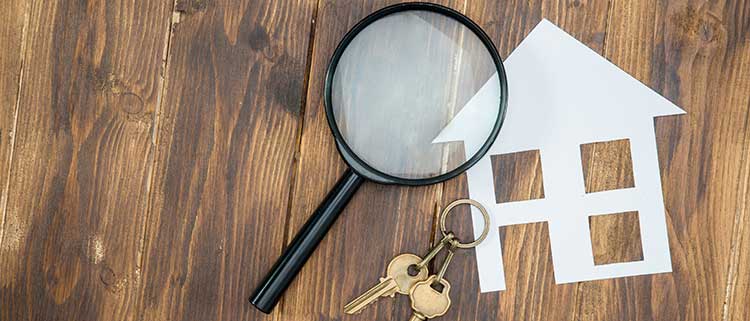Getting Ready for a Home Inspection

So, you’ve put your house on the market, found a buyer, and agreed on a price. The sale of your home is almost done, but it’s not quite time to start packing the boxes just yet; you still have to undergo with the home inspection.
In several real estate transactions, the house inspection takes place after the buyer has signed the purchase agreement and before the final closing date. Most homebuyers choose to make the closing contingent on the results of the home inspection, which means they can back out of the agreement if the inspector discovers something they don’t like or reduce the purchase price to compensate. As a seller, you’ll want a home inspection to go as smoothly as possible, with little to no major issues will be discovered.
Home Inspection
During the home inspection, the home is evaluated from top to bottom, with particular attention to the roof, walls, foundation, plumbing, electrical, and HVAC systems. The inspectors will also look for leaks, fungus, and other indicators of water damage, as well as the working capabilities of installed equipment like garbage disposals and carbon monoxide alarms.
It’s natural for a seller to be worried during the home inspection process. You don’t want the agreement to fall through, and you certainly don’t want to be burdened with the cost and responsibility of repairs if your buyer demands them as a condition. There are certain things you can still do to prepare for the inspection, though.
Provide Open Access
Make sure the home inspector has easy access to all areas of the house. They won’t be able to evaluate an area if they can’t get to it, which will be a red flag for potential buyers. Clear any restrictions to the inspector’s access to areas or systems that need to be examined, such as basements, attics, furnace rooms, and under sinks.
Clear the Perimeter
The inspector will examine the exterior of your home, including siding, trims, and caulking around windows and doors, in addition to the interior functioning of your home. To give them a clear view, keep areas around your home free of plant growth, trash cans, and stored goods.
Check the Roof
When was the last time you looked up at your roof or had a professional roof inspection? It’s been a while for most sellers. Clean moss and debris from the gutters, get your ladder, inspect for damaged or missing tiles, and make sure downspouts are in the right position. If there is any damage to the roof, you may want to repair it before the home inspection.
Maintain a Clean Environment
After an accepted offer, resist the desire to let things pile up and keep the house clean for the home inspection. You can always call for a professional cleaning service to help you clean your house. Although the cleanliness of your home has no impact on the inspection, a dirty or messy home may prevent the inspector to access areas of the home.
Replace Any Bulbs that are not Working
A blown bulb can mean a few of two things to a home inspector: either the bulb is broken or the fixture’s wiring is bad. Either the inspector will have to waste time evaluating whether a fixture is inoperable, or they will just write that a problem exists without further investigation. Make sure that all of your bulbs are in good working order to avoid both of these scenarios.
Make Sure your Toilets are in Good Condition
When you flush your toilet, does it flush quickly? It’s a common problem that’s easy to recognize when you’re living with it on a daily basis, but it’s not something you want
your home inspector to spot. Fixing a toilet is a simple and inexpensive repair that you can do yourself, so take care of it before the inspection.
Install a New Furnace Return Filter
It’s essential to change your furnace filter on a regular basis to ensure good air quality and the regular maintenance of your heating system. Instead of making the inspector think you haven’t been paying attention to your home’s heating and air, clean or replace the present filter to prove that you have.
Make Sure the Fuse Box is Labeled Properly
Homeowners and home inspectors will be annoyed when your fuse box does not have any labels. Check that each switch in the box is clearly labeled, and replace any labels that are fading or difficult to read.
Check Your Doors
Take a trip around your house and inspect each door to ensure that it is in good condition. Interior and exterior doors should easily latch into the frame, doorknobs should be firmly in place, and any locks, particularly on doors that lead outside, should be working properly. Check all doors, particularly ones you don’t use very often, because cold or heat can damage functional doors and cause difficulties.
Maintain Cabinets
Cabinet hinges can easily become loose, resulting in doors that don’t close or aren’t flush with the frame. If you have a cabinet that it looks like it loose, tightening the hinge with a screwdriver is commonly enough to repair it.
Look for Leaks and Water Damage
The home inspector will almost surely look for signs of leaks or water damage, so be ahead of them and fix any water-related concerns before the inspection. Check under sinks, behind faucets, around the base of your toilets, bathtubs and/or showers, and under any appliances that may leak, such as dishwashers and refrigerators, when checking for leaks. When it comes to water damage, look for signs of warping, sagging, or buckling on the walls, ceilings, and flooring. Remember to look for signs of leaks or water damage on the exterior of your home as well. If you notice water pooling near the base of your home, be aware.
Take Care of Bug Issues
Most of us, especially in warmer weather, have to deal with an errant ant or spider in our homes. However, if you have a wasp nest in your garden or see ants in your kitchen or other inside areas on a daily basis, you should resolve these issues by hiring a pest control team before the inspection. Although most bug issues are not that issue but they can turn off potential buyers.
On the Day of the Home Inspection, Be Ready
You should have done everything you can to prepare for the home inspection by the day of the inspection. It’s now just a matter of making sure everything works as smoothly as possible. Keep all utilities turned on, double-check that you’ve left clear access to all areas and systems throughout the house, and unlock any gates, electrical boxes, or other areas you normally keep secure. Most importantly, prepare at least two hours before the inspector is scheduled to arrive (inspectors are known for being on time), and prepare yourself and your family to leave the house during the inspection. It’s ideal if you can bring your pets with you, but if that’s not possible, make sure they’re safely crated or otherwise secured.




